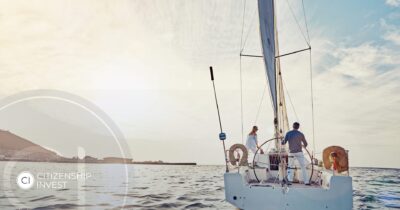

Albert Einstein, highly regarded as among the most intelligent individuals in history, once said, “The hardest thing in the world to understand is the income tax.” Indeed, taxes remain a complex subject, especially in today’s interconnected world. Thus, it is no surprise that many savvy individuals are increasingly turning to Citizenship by Investment (CBI) to safeguard wealth and optimise tax obligations.
Understanding Citizenship by Investment and its Tax Implications
Citizenship by Investment Programs have excellent tax regimes, making them ideal for those looking to optimize taxes, protect assets, and plan wealth effectively. The benefits of tax optimization have contributed to the rising popularity of CBI programs, which provide one of the fastest and most straightforward pathways to citizenship through an economic contribution or foreign investment, typically starting at USD 130,000. Each year, popular CBI destinations like Vanuatu, Malta, St. Kitts & Nevis, Dominica, Grenada, Antigua & Barbuda, and St. Lucia attract global investors seeking more than just a passport.
In these CBI programs, tax residency determines your tax obligations within a jurisdiction, and each country applies unique criteria—such as time spent in the country or economic interests—to define this status. Individuals can choose tax regimes that align with their financial goals by holding multiple citizenships, significantly impacting their present and future portfolios.
Key Tax Benefits of a Second Citizenship
Let’s explore the many ways a second citizenship can help investors maximize and protect their wealth.
As countries differ widely in their tax structures, a second citizenship opens doors to jurisdictions with low or no-income tax, capital gains, or inheritance tax. For instance, holding Malta citizenship does not automatically subject you to taxation unless you become a tax resident, and Malta has double taxation treaties with over 60 countries. Vanuatu offers citizenship with no personal income tax, and Caribbean CBI programs—like those in St. Kitts & Nevis, Dominica, Grenada, Antigua & Barbuda, and St. Lucia—do not tax worldwide income, inheritance, wealth, capital gains, or gifts. This flexibility allows investors to minimize their global tax burden while enjoying the lifestyle benefits of CBI programs.
The non-domiciled (non-dom) status has been a feature of the UK tax system for over 200 years, allowing UK residents whose permanent home is outside the UK to benefit from a ‘remittance basis’. This effectively exempts foreign income and gains from UK taxation unless brought into the UK. However, starting 6 April 2025, the current non-dom regime will be replaced with a residence-based tax system, significantly changing the tax landscape for non-doms.
This change can be particularly advantageous for individuals with a second citizenship. A second citizenship can provide access to more favourable tax jurisdictions, allowing you to manage your tax obligations strategically. For instance, if you acquire citizenship in a country with low or no income tax, you can mitigate the impact of the UK’s new tax rules. This allows you to maintain financial flexibility and protect your wealth from increased tax liabilities associated with the new regime. For example, the tax treaty between Malta and the UK gives Malta exclusive taxing rights over pensions sourced from the UK for Maltese tax residents. So, the same pension income is not taxed twice.
Dual citizenship provides greater flexibility in estate planning. By leveraging the inheritance laws of multiple countries, you can transfer assets more efficiently to your heirs, minimising tax liabilities. For example, you can create an irrevocable trust in your home country and maintain residency in a second jurisdiction with no estate taxes, optimising wealth transfer.
A second passport also safeguards against political or economic instability. Individuals from nations facing wealth taxes or political unrest can shield assets through dual citizenship.
Setting up a business in a low-tax jurisdiction is another powerful strategy for optimizing tax obligations. Many countries with CBI programs offer tax credits, deductions, or exemptions to attract foreign investment. For example, Malta exempts taxes on properties obtained under the CBI program if the property is held for at least five years and used solely for residence.
Strategic Implementation for Maximum Tax Optimisation
Before making any decisions, you must conduct thorough research, in addition to the expert guidance Citizenship Invest provides to help identify the right CBI program for you, consulting a tax advisor specializing in international tax law is essential to ensure you are legally aligned with your tax obligations.
By viewing second citizenship as a strategic investment—not just for global mobility but also for financial security and tax optimization—you can effectively leverage the advantages of CBI programs to suit your unique financial and personal situation. This approach helps protect your wealth, minimize tax liabilities, and secure your future. Start exploring the opportunities of citizenship by investment today and unlock your path to financial freedom.